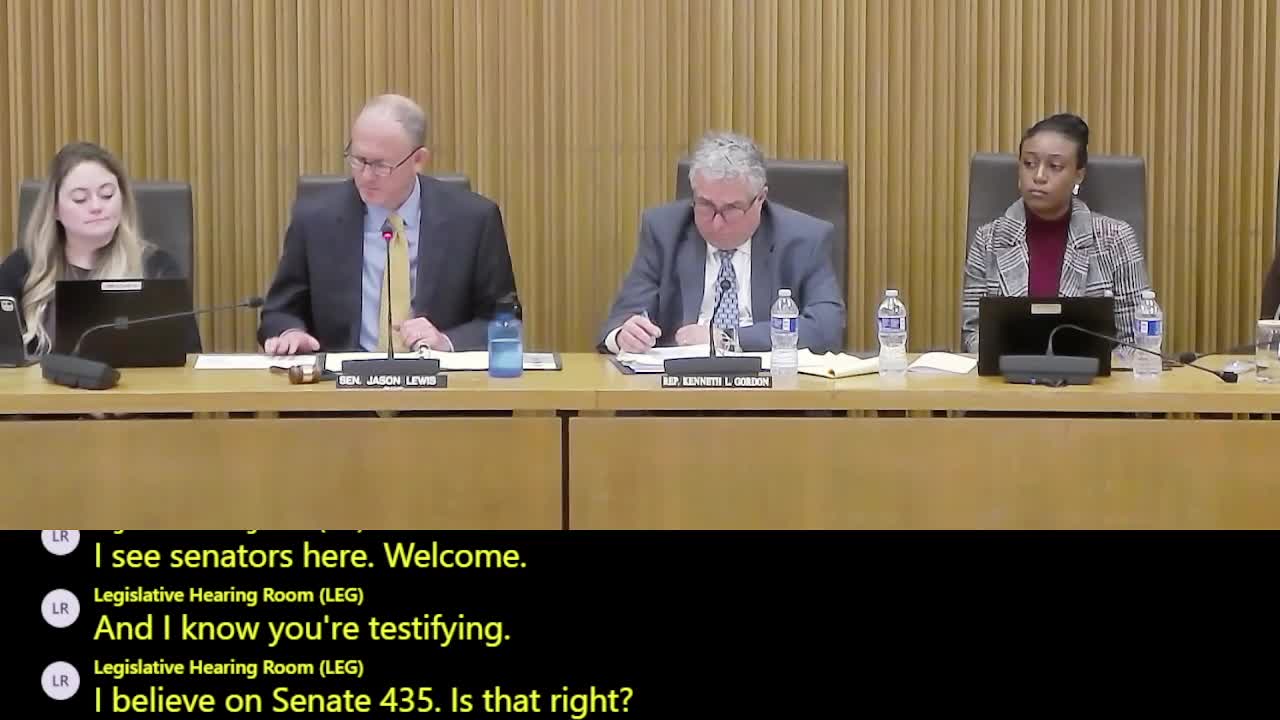Bill would require de-escalation training for school bus operators after parent’s account of unsafe episode
Get AI-powered insights, summaries, and transcripts
Subscribe
Summary
Senate Bill 435 (filed with House Bill 736) would require de-escalation training approved by the Executive Office of Education for school bus operators and associated staff. Sponsor testimony and a parent account of an incident on a bus prompted committee interest and a request for details on current training practices and costs.
Senate Bill 435, sponsored by Senator (file sponsor) and filed in companion to House Bill 736, would require school bus operators to receive de‑escalation training approved by the Executive Office of Education and, where employed, for that training to be paid by the employer.
Sponsor testimony described an incident involving the lawmaker's constituent’s son and urged the committee to adopt mandatory statewide training so operators and monitors can safely manage behavioral or medical events on buses and reduce unnecessary law-enforcement involvement. "Parents across the state should feel confident that the school bus they send their kids to is a safe place," the sponsor said in the hearing.
Raquel Casada, the mother whose son was cited in sponsor testimony, described gaps she observed when bus staff encountered medical events and students with complex needs: "They don't know what to do in situation where they need to be training... They don't know what to do, who to call," Casada testified, and asked the committee to require operators and monitors to have consistent, mandatory training.
Why it matters: Witnesses said transportation settings present different constraints than classroom settings — only one operator is available, space is confined, and response options are more limited. Advocates argued that training for drivers and bus monitors should include de‑escalation, recognition of medical emergencies (for example, seizures), and protocols for whom to call.
Key details and clarifications
- Proposed requirement: School bus operators (and potentially bus monitors/other on-board staff) would receive de-escalation training approved by the Executive Office of Education; employers would pay for training for their employees. - Scope questions: Committee members asked whether the bill should explicitly cover private transportation contractors (used by some districts) and whether it should include bus monitors in addition to drivers. The sponsor said she was open to broadening the scope. - Current practice: Witnesses said some training exists but that it is not mandatory or standardized statewide; the committee requested information about which districts or operators currently require such training.
Quotations
- "This bill represents hope and prevention and ensure that the school bus operator transportation staff are not only certified, but... know how to handle an emotional situation," Raquel Casada, parent and advocate.
Discussion and committee requests
Legislators asked the sponsor and witnesses for more detail on (1) whether current district or private-operator training programs exist, (2) the training length and curriculum, (3) how costs would be borne by districts or contractors, and (4) whether required training should be extended to bus monitors and other on-board staff. The sponsor indicated openness to expanding coverage.
Formal actions and procedural outcome
Senate Bill 435 and House Bill 736 were heard but not voted on. Committee members asked the sponsor to gather information about existing trainings and potential cost estimates before the committee takes further action.
Ending/next steps
Committee staff requested follow-up data on mandatory training prevalence, sample curricula and estimated time commitment so the committee can consider drafting a bill amendment that clarifies scope, covered personnel, and funding responsibilities.
